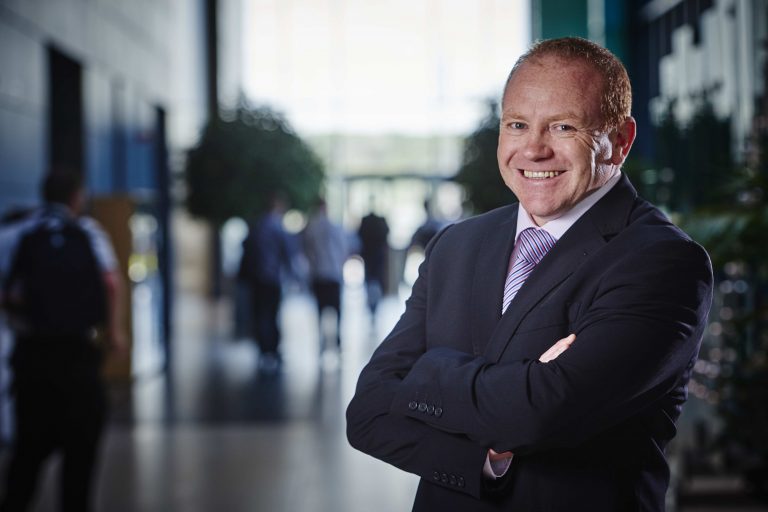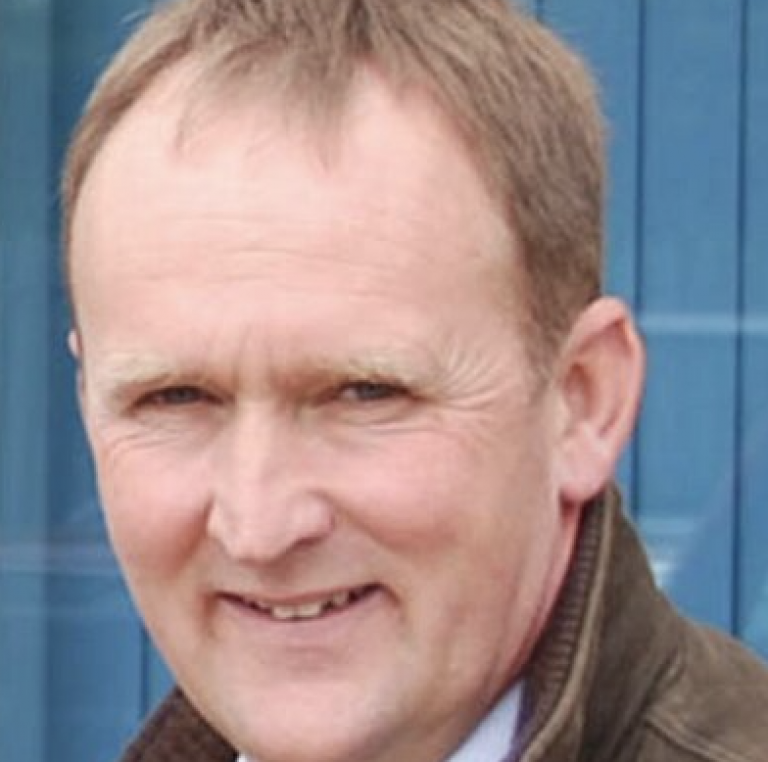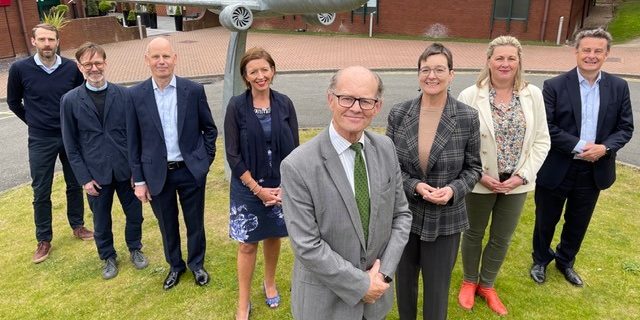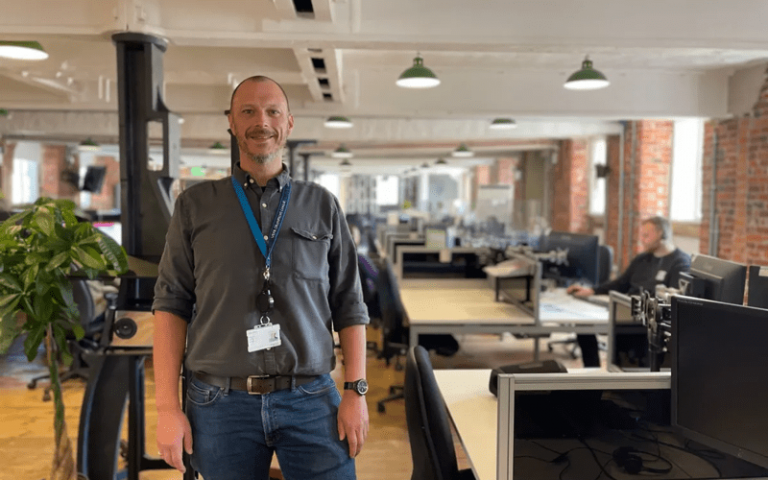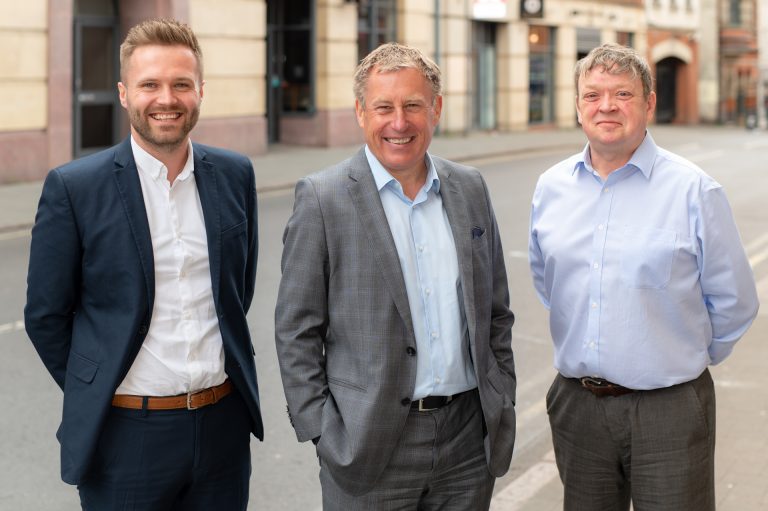
The Midlands delivered a strong Foreign Direct Investment (FDI) performance last year, according to the 2022 EY Attractiveness Survey, with both the West and East Midlands seeing their number of FDI-backed projects growing at a faster rate than the rest of the UK.
The West Midlands hosted 78 FDI projects in 2021, up 27.9% from the 61 projects located in the region in 2020. The West Midlands even improved on its immediate pre-pandemic performance, with only 64 projects taking place in 2019. Meanwhile, the East Midlands hosted 39 projects in 2021, up 2.6% from the 38 projects in 2020 and the same number of projects as 2019. By comparison, UK project numbers grew just 1.8% from 975 in 2020 to 993 in 2021.
The West Midlands’ performance means the region has overtaken the North West as the home of the most FDI projects outside London, the South East and Scotland. The region has a 7.9% share of all UK projects – up from 5.8% in 2019 – while the East Midlands has 3.9% of all projects, up from 3.5% in 2019.
The East Midlands also has good reasons for optimism about future growth, with 8.6% of investors surveyed by EY describing it as the most attractive UK region for investment, behind only London (26.9%), Scotland (15.8%) and the South East (9.3%). The East Midlands’ 2021 project total was above its 10-year average of 34.6 and more than double the 17 projects in the region in 2012.
In the West Midlands, the key sectors were digital technology (21 projects), machinery and equipment (13), and business services (eight) – with digital projects almost doubling from the 11 projects last year. Meanwhile, the East Midlands’ leading sectors were transportation and logistics (nine projects), agri-food (seven), and machinery and equipment (seven). Both transportation and logistics and machinery and equipment projects were at their highest level in the last five years.
Business services (22 projects) were the key activity in the West Midlands, followed by manufacturing (15), which saw its first increase in project numbers since 2017. In the East Midlands, manufacturing led the way with 12 projects, followed by logistics (11).
Simon O’Neill, Office Managing Partner at EY in the Midlands, says: “The Midlands has been a UK FDI success story in 2021, with both the West and East Midlands bouncing back from the impact of the pandemic on inward investment – or, in the case of the West Midlands, charging ahead of where things were before the pandemic started. The regions’ successes have been built on a diverse mix of sectors, whether it’s digital technology in the West Midlands or logistics in the East Midlands.
“Looking ahead, there are reasons for optimism. Across Europe, there is a swing towards investment in manufacturing, a sector in which the Midlands has historically excelled. Combined with the growing importance of ‘cleantech’, the Midlands has an opportunity to establish itself as a European centre for developing and building the green technologies needed for the UK to reach its Net Zero targets. Notably, manufacturing projects tend to bring investment to towns rather than cities, which means they can help levelling-up within regions, not just between them.
“One thing which is consistently very clear from investors is that the strength of local business networks matters when they’re choosing where to site their projects within a country. Local skills and infrastructure, support from regional development bodies and access to regional grants are also part of the mix too, reinforcing the importance of devolving power and fostering local ecosystems. Building a unique sense of place from in its economy will help the West and East Midlands build their attractiveness to investors.”
The leading location for FDI in the Midlands was Birmingham (17 projects – sixth largest non-London city), while Warwick was a stand-out location in the country, with growth in the digital sector boosting projects from two in 2020 to 12 in 2021. Coventry, with six projects, was the third Midlands location in the UK top-20.
UK retains second place in Europe for investment
EY’s report also reveals that the UK has retained second place in its annual ranking of European countries by their ability to attract FDI projects, with investment activity in Europe and the UK beginning its recovery from the pandemic. France held top spot for project numbers for the third year running, although the UK came first in Europe for new projects and led France and Germany on jobs per project.
The UK’s 1.8% improvement in project numbers from 2020 was a return to growth after a pandemic-driven fall of 12% the year before (from 1,109 in 2019).
However, while the UK managed to close the gap to European leader France in 2020 to just ten projects, the number of French FDI projects grew 24% in 2021, from 985 in 2020 to 1,222 – a European record high.
Overall, Europe recovered some ground after the pandemic-driven 13% decline in project numbers recorded in 2020. The continent saw 5.4% growth in 2021, with 5,877 projects recorded (up from 5,578).
Alison Kay, Managing Partner for Client Service at EY UK & Ireland, comments: “The UK continues to be recognised as a leading destination for inward investment in Europe. Although the gap in the number of projects between the UK and France has widened, there are still many reasons to be optimistic.
“The proportion of investors looking to back projects in the UK is at a record high. Also, the number of ‘new’ projects secured by the UK, which typically generate more jobs and higher levels of investment, was not only up on the year before, but was the highest level in Europe.
“It seems the UK’s focus on attracting greater ‘value’ FDI projects over ‘volume’ is starting to bear fruit, building on the country’s recent successes in Research & Development and digital technology.
“However, there remains room for improvement. Investment into Europe has been shifting from services to manufacturing, a swing which leaves the UK with ground to make up. As we’ve said before, a drive towards ‘green’ manufacturing could help the UK attract investment, while accelerating progress towards sustainability and levelling up goals.”
New projects and investor sentiment are encouraging for the UK – but war in Ukraine is a risk across Europe
The survey reveals that ‘new’ FDI projects represented over three-quarters of all UK projects in 2021 and were up 5% from 2020. The UK matched its decade-high share of new European projects, with one-in-five new projects launched here.
The impact of having a high proportion of new projects can be seen in the jobs data: where job creation was reported, the UK averaged 68 new jobs per project, ahead of Germany (48) and France (38). Reported capital per project was also higher in the UK than it was in France.
Meanwhile, 58% of surveyed investors said they were planning to invest in the UK in 2022, up from 41% last year, and easily the highest level of investment intent ever recorded. By contrast, 53% of respondents said they intended to invest in Europe this year. Seventy-nine per cent of survey respondents feel UK attractiveness will stay the same (30%) or improve (49%) over the next three years – the highest level since the UK’s 2016 referendum on EU membership.
Alison Kay adds: “While businesses may hope to invest significantly – making up for two years affected by the pandemic – new challenges will always emerge, and competition for FDI remains intense. The UK can’t rest on its laurels and will need to adapt to meet changing investor needs in order to maintain its attractiveness. Positive sentiment means the UK has an optimistic outlook, but investor intentions don’t always translate into investment actions.”
Digital investment projects remain the UK’s FDI backbone, while high value activity success continues
The digital technology sector remains by far the leading sector in the UK’s FDI make-up with 345 projects recorded in 2021, up 7% from 2020 (322). Digital tech represents 34.7% of all UK projects compared to 20% of European projects. The UK’s next-largest sector, business services, attracted 94 projects.
The UK’s manufacturing performance continues to show room for improvement, with the 145 projects recorded in 2021 equivalent to a European market share of just 8.2% (having been 12.6% and 183 projects in 2015). More positively, the UK performed well in other high value activities such as Headquarters or R&D projects.
Simon O’Neill says: “It’s encouraging that several of the faster-growing and potentially higher-value sectors, such as tech and wellbeing, are among the most positive towards the UK as an FDI location. Despite the UK’s relatively poor manufacturing performance in recent years, two-thirds of manufacturers are looking to invest here in the next year – a figure which rises to four-fifths for the tech sector.
“There are opportunities to expand in other important sectors, too. Investors are increasingly singling out cleantech as an expected driver of future UK growth – although they are still more likely to say cleantech will be a driver of European growth. Investors say the top two growth areas for cleantech in the UK are electric vehicles and battery technology, followed by a wide array of other areas, including heat networks and carbon capture. The scope of the sector and the UK’s active involvement – and, in some cases, leadership – in key parts of it underlines the scale of the opportunity on offer. It’s an opportunity the UK must realise if it is to develop and build new technology, not just deploy it.”
London remains relatively subdued, while Scotland goes from strength to strength
London remains the UK’s – and Europe’s – leading location for FDI, but despite a 2.9% rise in projects from 383 in 2020 to 394 in 2021, the city remains well down on the 538 projects it recorded in 2019. London’s share of the UK market held steady at 39.7% in 2021, having been as high as 48.5% in 2019.
By contrast, several other UK regions or nations either recovered to their 2019 level or bounced back further: Scotland led the way with 122 projects (up 14% from 2021), followed by the South East (82 projects, up 14%) and the West Midlands. By contrast, Yorkshire and the Humber (40 projects, down 27%), the East of England (40 projects, down 26%), Wales (17 projects, down 26%) and the North West (74 projects, down 13%) saw notable year-on-year declines. At a city level, Edinburgh and Manchester (31 projects apiece) were the top non-London performers, although both recorded fewer projects than in 2020.
Simon O’Neill says: “Levelling-up as a policy idea has cut through, with almost two-thirds of investors we surveyed having heard of it last year. Awareness has turned into engagement this year, with a similar proportion saying levelling-up influences their location decisions and that they’ll look to invest where government support is available – although project numbers are yet to reflect this. Almost three-quarters of manufacturing and wellbeing investors are interested in the opportunities geographic rebalancing offers.”

















